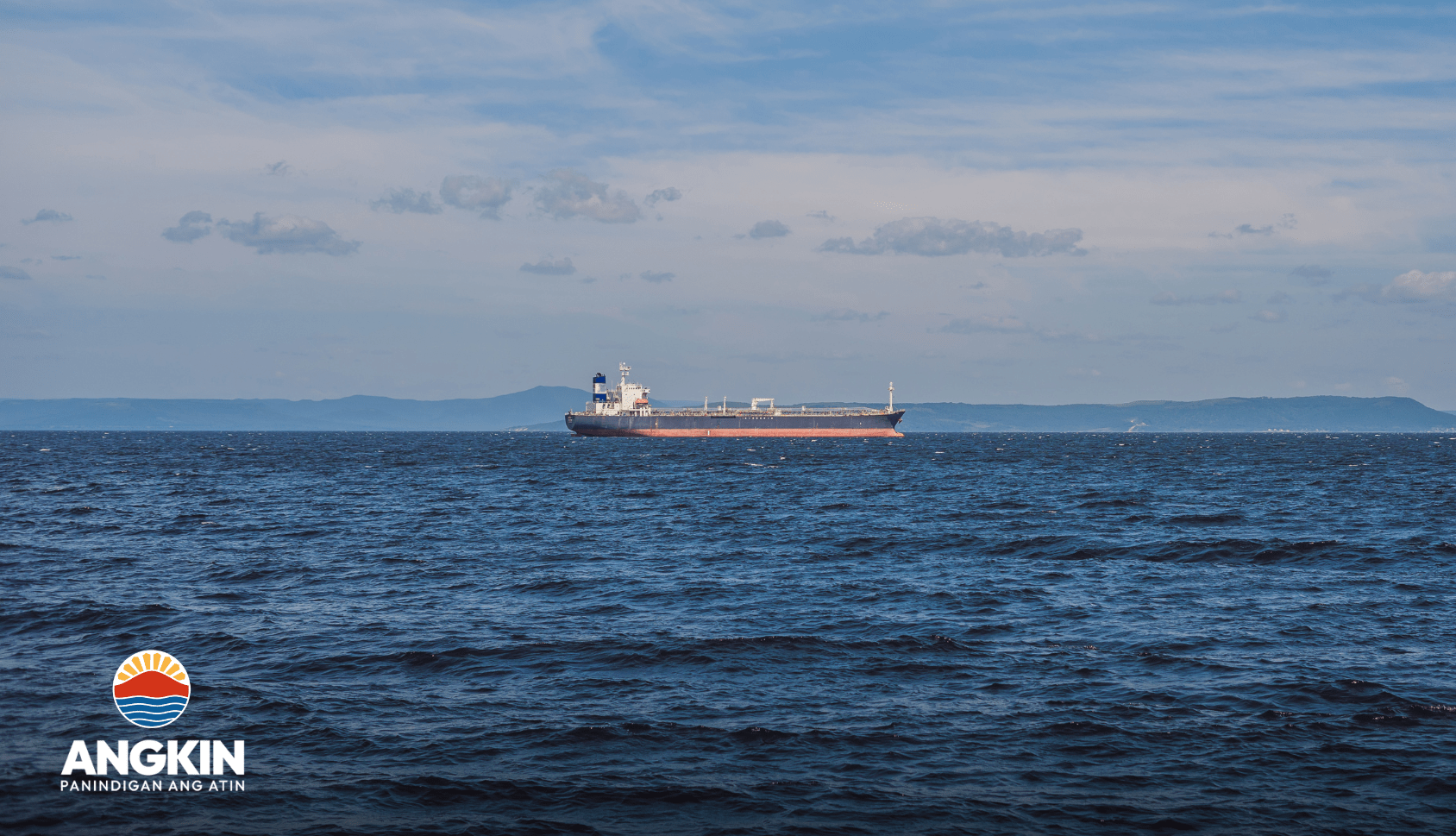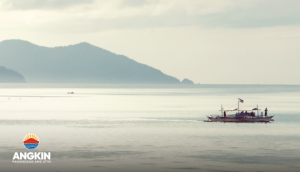In response to the pressing maritime issues between China, the Philippines has advanced in its legislative process as Senate Bill 2492, or the Philippine Marine Zones Act, leaving the halls of Congress to be examined yet again in the Senate. SB 2492 aims to define and affirm the country’s maritime borders from the exclusive economic zone (EEZ) to internal waters, based on the principles found in the United Nations Convention on the Law of the Sea (UNCLOS) and the historic South China Sea Arbitration Award that was issued in favor of the Philippines in 2016.
Nine senators, including Francis Tolentino, Ramon “Bong” Revilla Jr., JV Ejercito, Jinggoy Estrada, Risa Hontiveros, Loren Legarda, Joel Villanueva, Sherwin Gatchalian, Ronald “Bato” Dela Rosa, and Raffy Tulfo, moved to pass the bill.
According to Tolentino, “It is now the time for Congress, particularly the Senate of the Philippines, to stand up for what is ours and take this fundamental step in ensuring that our national interests in Philippine waters are protected, by passing this law that will ‘govern the seas and resources of the Philippines for generations to come,’”
“Ang Pilipinas na duyan ng magiting ay hindi kailanman yuyuko at matitinag sa anumang intimidasyon o pananakot. At kailangan natin ng solido at matibay (na) pundasyon na tuntungan ng ating mga argumento, karapatan, at kapangyarihan. At iyan nga mismo ang layunin ng Philippine Maritime Zones Act,” Sen. Revilla said.
(“The Philippines will never bow down to any intimidation or threat. And we need a solid and strong foundation for our argument, rights, and power. That is the purpose of the Philippine Maritime Zones Act,” Sen. Revilla said.)
To strategically bolster our territorial claims—especially those related to the West Philippine Sea—the legislation not only sets a legal framework for the exercise of jurisdiction but also proclaims sovereignty over what is rightfully ours.

Significance of SB 2492
SB 2492 is a way for the Philippines to create a legal framework for enforcing its sovereignty and jurisdiction over marine regions, especially in the West Philippine Sea, and to strengthen its claims to these territories. The Act was created to close the apparent “missing link” between the Philippines’ 1984 adoption of the UNCLOS and its lack of conformity with local laws.
This bill goes beyond just drawing lines on maps to show where our seas start and end. It also helps our government make the most out of the ocean and its resources to grow our blue economy. According to Dr. Rhodora Azansa, this could be worth somewhere between $966 billion to $1.5 trillion, especially if we count the continental shelf. Moreover, Senator Villanueva adds that this law doesn’t just protect our rights as an archipelago but also helps us use legal, political, and diplomatic tools to make sure everyone follows our maritime rules and regulations.
During a press briefing, bill-sponsor Tolentino stated that under SB 2492, all man-made islands situated within the Philippines’ 370-kilometer EEZ are considered the property of the Philippines.
“Even if we were not the one who built the [artificial islands] as long as it is within our EEZ, it’s ours,” he said.
However, the Chinese Foreign Ministry criticized the passage of the Maritime Zones Act by the Senate, describing it as “an effort to further enforce the ruling of the illegal arbitration on the South China Sea.” The Ministry firmly opposed the Act and lodged formal protests to the Philippines, accusing them of initiating an international arbitration process that violated international laws.
Moreover, according to Ding Duo, a Deputy Director and associate research fellow at the Research Center for Ocean Law and Policy at the National Institute for South China Sea Studies, this bill is seen as a deliberate action to upset China. He believes that once the law takes effect, the Philippines might take further steps to challenge and provoke China. This could include actions like seeking to extend its continental shelf boundaries beyond 200 nautical miles in the South China Sea, negotiating maritime boundaries with other countries in the region, and possibly filing new international lawsuits under the pretext of protecting marine environments and ensuring freedom of navigation.
In response, Tolentino also remarked that Chinese authorities seem to be worried about the potential consequences of enacting the Philippine Maritime Zones Act, which itself acknowledges the significance of the legislation.
“Although they are trying to put a semblance of insignificance, the way they are acting is they are worried as to the future ramifications and consequences, which the international community will bear on them,” he said.
Future implications for the Philippines’ maritime jurisdiction
SB 2492 serves as a foundational policy that will drive the Philippines to forge a comprehensive maritime security framework, which advances the country’s interests by protecting, sustainably harnessing, and maximizing marine resources. Additionally, it provides guidance on the rights, duties, and entitlements of the Philippines in various maritime zones, serving as a valuable tool to further the goals of other relevant maritime laws.
By outlining our maritime borders, the bill also empowers us to fully utilize our oceans for economy-boosting activities such as fishing and energy production. More than a mere law,SB 2492 is also a blueprint for a safer and more prosperous maritime future. This bill represents a significant stride in safeguarding the safety and prosperity of our seas
Why is this significant to Filipinos?
Clarifying our rights and jurisdiction over areas in the West Philippine Sea, SB 2492 opens up a world of opportunities for Filipino fisherfolk, scientists, local communities, and the entire country. If signed into law, our fisherfolk have the right to explore the WPS, which means access to abundant fishing grounds. By properly enforcing our maritime laws, our fisherfolk can enjoy greater security and livelihood opportunities.
Additionally, the West Philippine Sea is a spot for marine biodiversity and natural resources waiting to be explored and studied. With the legal framework provided by SB 2492, Filipino scientists can conduct research and exploration expeditions with confidence, contributing valuable knowledge to marine conservation efforts and sustainable resource management.
Lastly, our local communities can experience a multifaceted list of benefits, such as increased exploration and utilization of the West Philippine Sea’s resources, significant economic growth and job creation, particularly in coastal areas dependent on fishing and marine-related industries, and overall personal growth.
Why should we advocate in urging the government to pass this bill?
The Philippine Maritime Zones Act holds immense significance for all Filipinos. This legislation is not just about drawing lines on maps; it’s about safeguarding our maritime rights and asserting our sovereignty over our waters. By urging the government to push for the swift signing of this bill into law, we are taking a bold stand for what rightfully belongs to us—the rich resources and vast expanse of the Philippine seas.
Enacting SB 2492 will empower our nation to fully enforce applicable maritime laws, ensuring that we have the legal framework necessary to protect our marine resources and assert our rights in the face of any challenges, especially now that continued harassment from the Chinese Coast Guards takes place. It’s about securing our future and ensuring that Filipinos benefit from our natural resources, especially those from our seas.
By advocating for the prompt signing of SB 2492, we are sending a clear message to ourselves, to our neighboring countries, and to the world—that the Philippines will not back down when it comes to defending our land. It’s a call to action for every Filipino to stand tall and unite in the defense of our sovereignty and maritime heritage.
Let us urge our government to act swiftly and decisively, and let’s show the world the strength and resolve of the Filipino spirit. Together, we can ensure that our maritime boundaries are not just lines on a map, but symbols of our strength, resilience, and determination as a nation.
Follow Us!
Stay informed and contribute to the cause by following Angkin PH on Instagram, Twitter, and Facebook. Your support matters in safeguarding our national heritage. Join the movement for a sovereign and sustainable future!













